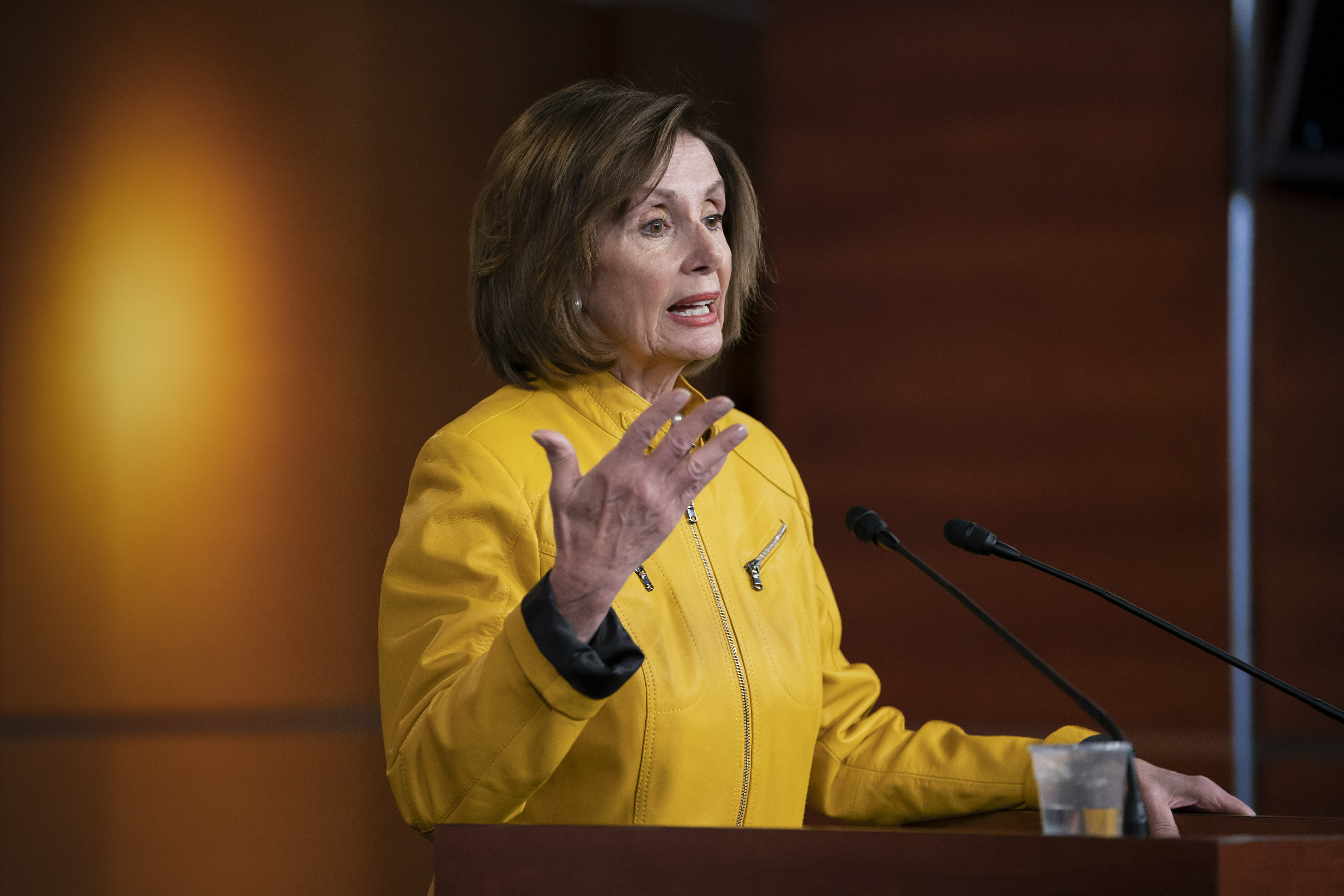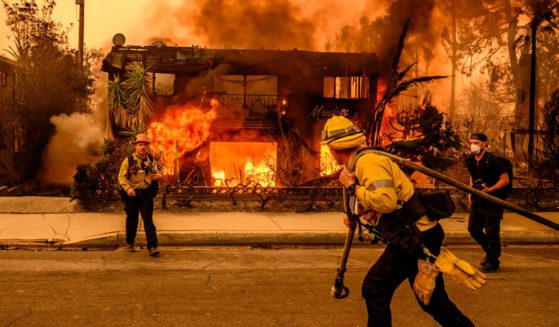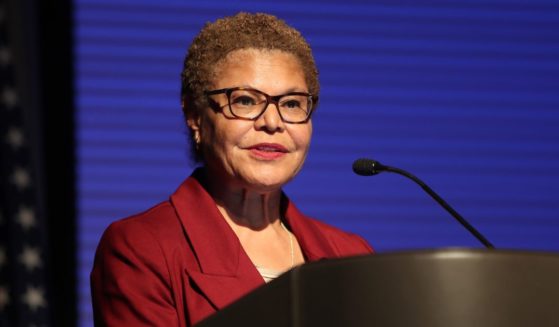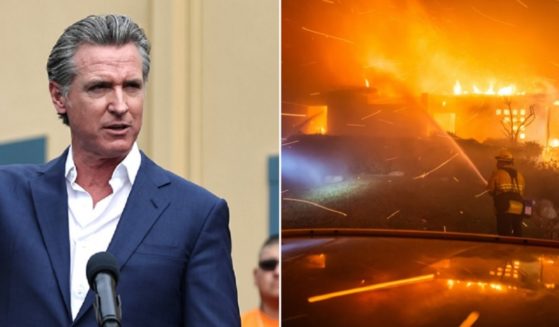
Dems accelerate election security push after Trump comments
WASHINGTON (AP) — Alarmed by President Donald Trump’s willingness to accept foreign dirt on a political opponent, House Democrats are accelerating their efforts to strengthen election security ahead of the 2020 campaign.
Lawmakers had already been compiling a fresh package of bills in the aftermath of special counsel Robert Mueller’s findings in the Trump-Russia probe. But House Speaker Nancy Pelosi said Democrats are now pushing ahead with votes because it’s part of “what the American people elected us to do.”
It remains to be seen if passage of bills through the House will break the stalemate in Congress over what to do about election security. While Russia interfered in the presidential election more than two years ago, lawmakers have yet to act on legislation — and there is no shortage of proposals.
Democrats sped up their efforts after Trump suggested Wednesday in an interview with ABC News that he was open to accepting a foreign power’s help in his 2020 campaign. He appeared to walk those comments back Friday, telling Fox News that “of course” he would go to the FBI or the attorney general if a foreign power offered him dirt about an opponent.
Still, the controversy gave fresh energy to an issue that Democrats have prioritized since they took the House majority in January. Even though the nation’s intelligence agencies said from early 2017 that it was clear Russia tried to influence the 2016 election in favor of Trump, Republicans who led both chambers did not move comprehensive legislation to address the issue. Senate Majority Leader Mitch McConnell has declined to hold a vote on a Senate election security bill that has bipartisan support.
The House bills seek to secure state election systems, put stricter limits on foreign election interference and provide more oversight of the executive branch, according to aides familiar with the legislation. The House could vote as soon as next week on the first bill in the package, a series of measures to improve state election systems with paper ballots, audits and funding of grants to states.
Rep. John Sarbanes, D-Md., among those leading the effort, said Trump’s attitude toward foreign interference was “breathtaking” and, he believes, the president is taking the country in the “opposite direction of where the public wants to go, which is to feel more confident, not less confident” in the vote.
“People should be concerned that we’re going to see another round of attempts to attack our democracy of the kind we saw in ’16,” Sarbanes said in an interview. He said special counsel Mueller’s report, which extensively detailed the Russian interference, flashed a “neon sign” that Russia was “coming again.”
Congress has struggled to improve election security in the aftermath of the 2016 election, tangled by partisan fighting and the intricacies of state-run election systems. The bipartisan Senate effort ahead of the 2018 midterm election was blocked by resistance from GOP leadership, taking cues from a White House neutral to the effort. At the start of the new Congress this year, House Democrats passed a sweeping package of election and ethics reforms, but Senate Republicans rejected much of the package as overreach.
“What is it about Mitch McConnell and the Republicans in Congress that they do not want to respond to what is so popular across the board in our country?” Pelosi said this week.
Republican Sen. James Lankford of Oklahoma said last month that talks had resumed on bipartisan Senate legislation that stalled last year. The White House and some Republicans said at the time that the bill, which would encourage backup paper ballots and bolstered election audits, could exert too much federal control over the states. McConnell declined to bring it for a vote last fall, and there are no signs he has changed his mind.
Virginia Sen. Mark Warner, the top Democrat on the Senate intelligence committee, tried to pass a separate bill on the Senate floor Thursday that would require campaigns to report any contacts from foreign nationals intending to interfere in a presidential election. But Republican Sen. Marsha Blackburn of Tennessee objected, blocking it from passage.
Trump appeared to praise Blackburn for the move on Twitter Friday, tweeting that Democrats “continue to look for a do-over on the Mueller Report.”
Warner tweeted back: “The President is making it quite clear that he wants the Senate GOP to obstruct any attempt to prevent future foreign election interference.”
House Democrats hope to move their election security bills in the coming weeks, ahead of the monthlong August recess. In addition to the legislation to improve state election systems, the package will include legislation by New Jersey Rep. Tom Malinowski to bar campaigns from sharing private materials with foreign governments. Similar to Warner’s legislation, it would require reporting to authorities if campaigns are approached by foreign actors with offers of assistance that involve illegal activity, such as hacking.
Malinowski’s bill was prompted by two episodes described in Mueller’s report — a meeting between Trump campaign staff and a Russian lawyer, and communications between Trump’s then-campaign manager Paul Manafort and a business associate accused of having ties to Russian intelligence.
Emails leading up to the campaign meeting — which was attended by the president’s son, Donald Trump Jr., his son-in-law Jared Kushner and Manafort — promised dirt on Democrat Hillary Clinton, but no one notified authorities. Malinowski’s bill would require political campaigns to file “suspicious activity reports” in such situations.
Separately, Manafort shared polling data during the campaign with business associate Konstantin Kilimnik. Malinowski’s legislation would make it illegal to offer private campaign materials such as that polling data to a foreign power.
“Many of us viewed the Mueller report not just as an invitation to hold people accountable but an invitation to legislate,” Malinowski said in an interview. “We want to make sure that going forward the law is crystal clear.”
Other House legislation under consideration, according to one of the aides familiar with the talks, would designate opposition research, like the dirt on Clinton, as a “thing of value” under existing foreign contribution bans so that it would be illegal to accept it.
The push for election security reform comes amid considerable nervousness about threats that could play out in 2020.
The FBI said in a statement that it has already talked to 2020 presidential campaigns, including two days of briefings in May in which they discussed “foreign influence and cyber security issues” and ways to mitigate risks.
“Election security is and will continue to be one of our nation’s highest national security priorities,” the FBI statement said.
The Western Journal has not reviewed this Associated Press story prior to publication. Therefore, it may contain editorial bias or may in some other way not meet our normal editorial standards. It is provided to our readers as a service from The Western Journal.
Truth and Accuracy
We are committed to truth and accuracy in all of our journalism. Read our editorial standards.
Advertise with The Western Journal and reach millions of highly engaged readers, while supporting our work. Advertise Today.












